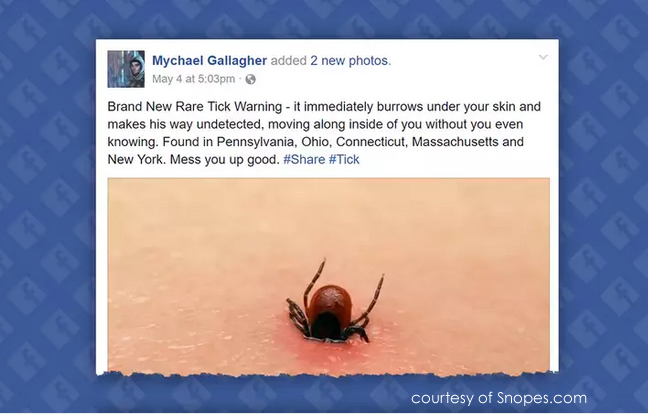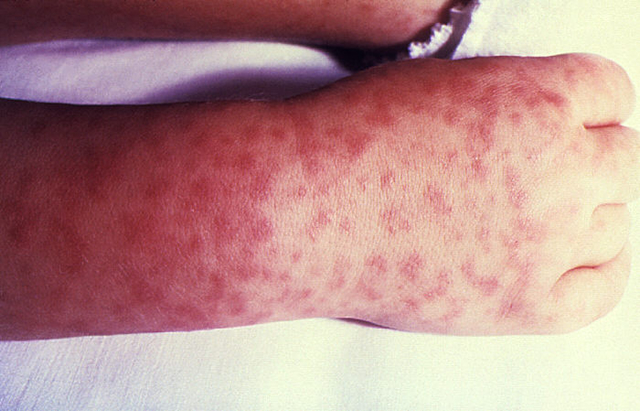Social media is a blessing and a curse. I use social media to spread Central Mass tick awareness each week, and some of my time is spent debunking viral myths. Sometimes, the information that has been passed, seems like outright fearmongering.

You have probably seen this post, or similar posts circulating on Facebook over the last two years, claiming that ticks can burrow under your skin and move around undetected. I expect that this fallacy will begin making its rounds again soon, if it hasn’t already. Do ticks burrow? Yes. Do they completely move underneath the layers of your skin, crawl around, and spread illness? NO!
Where does tick misinformation come from?
Though the origins of the story are unknown to me, I can only assume that it came from reports surrounding the “seed tick” (slang for a tick in the larval stage of life) a couple of years ago. The CDC posted this photo on their social media, warning of the dangers of nymph ticks, the most likely to spread disease.

The small size of the nymph is alarming, as one tick is about the size of a poppy seed, making them difficult to detect or identify. Nymph ticks are in the second stage of their lives, having taken their first blood meal from animals, such as white-footed mice, often carriers of Lyme Disease, in their larvae stage. Nymph ticks are dangerous – VERY dangerous, often diseased, and ready to make your family or family pet their next blood meal, at which time they can transmit diseases.
Watch this tick burrow into human skin, aided by a “mouth full of hooks!”
Leominster tick protection is essential to your family’s health!

With the dangers of an increased tick population in Central Mass, tick control is not an option, but a necessity. I urge you to be proactive in the fight against the spread of tick-borne illnesses, such as Lyme Disease, Rocky Mountain Spotted Fever, Tularemia, and even tick paralysis in dogs. Illnesses contracted from ticks are dangerous in a few ways. Some have terrifying symptoms, such as temporary blindness. Lyme Disease can be misdiagnosed for other diseases, like dementia, and produce lifelong ailments. Rocky Mountain Spotted Fever is difficult to diagnose, and if not treated properly and early, it can be deadly.

If you do find a tick on yourself or a family member, follow the CDC’s recommended tick removal instructions.

Keep your family and guests safe from ticks and the harmful diseases they carry by calling a professional tick control company!
Also read: Are ticks getting smaller?